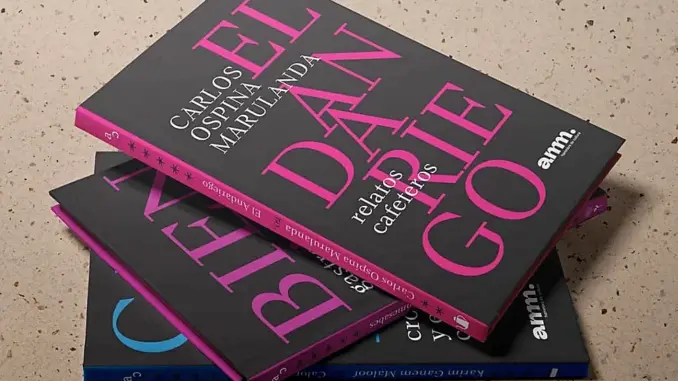
We get a glimpse into Carlos’ coffee journey and learn what inspired him to write a book about the lives of coffee producers in Colombia.
BY VASILEIA FANARIOTI
SENIOR ONLINE CORRESPONDENT
Photos courtesy of Ana Gómez
During my visit to Colombia last year, I had the privilege of meeting Alejandro and Carlos Ospina Marulanda. The brothers are the visionaries behind a coffee-focused company dedicated to making a positive impact on Colombia’s specialty-coffee industry.
Their impressive portfolio of projects includes the establishment of the specialty-coffee brand Café Banna, the creation of a captivating book titled El Andariego (The Wanderer), consultancy initiatives, coffee shop tours in Bogotá and Medellin, and crucial support for coffee farmers to enhance the sustainability and profitability of their businesses.
Now, with the upcoming republication of El Andariego, I had the opportunity to sit down with Carlos and explore the inspiration behind writing the book. In this interview, we delve into the experiences he gathered during his extensive travels across Colombia and the lessons he learned along the way.
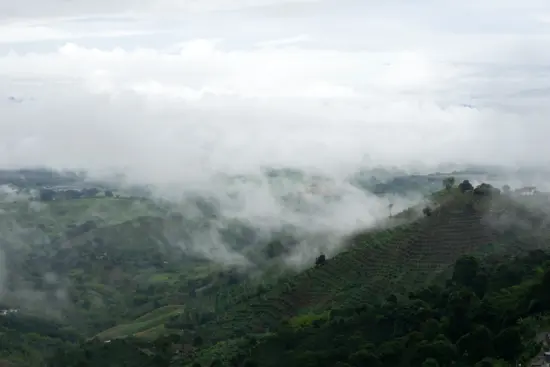
Getting to Know Carlos Ospina Marulanda
Vasileia Fanarioti: What inspired you to pursue a career in coffee?
Carlos Ospina Marulanda: Understanding that in a coffee-producing country like Colombia coffee farmers receive a small percentage of the final sales price of coffee motivated me to look for and create ways in which the Colombian population could understand this problem. Furthermore, this had to be accompanied by a process of transformation on the farms and the purchase of coffee so that the income of coffee growers increased. That’s why I wrote El Andariego. But that’s why we also created Café Banna, a specialty-coffee brand that believes in fair trade.
Can you tell us how you are involved in coffee together with your brother?
Our involvement in the coffee industry extends beyond just my brother and me. We’re part of a dedicated team, including Ana Gómez and Javier Silva. Together, we’ve ventured into various coffee-related projects. Notably, we’ve introduced Café Banna, as well as Eat Coffee, which offers innovative, organic, and healthy caffeine-infused snacks. Our collaborative efforts aim to contribute positively to the world of coffee.
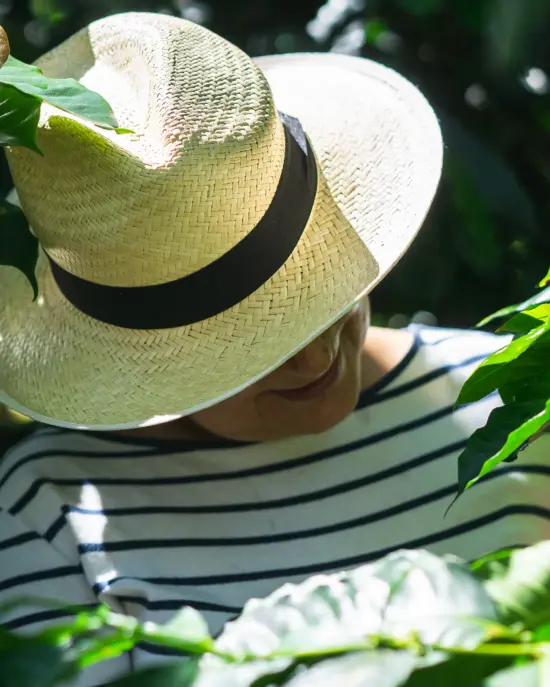
What motivated you to write the book El Andariego?
My wish to unearth untold narratives, connect with coffee farmers on a personal level, and uncover their way of life. Sharing these previously unheard stories. Bridging the urban-rural gap, and bringing the essence of the countryside into the heart of the city.
How did your travels in Colombia inform the content of the book?
They were the base. Without travel there would have been no book. The book is a consequence of the trips. And the reason for it, too.
What have been some of the most meaningful moments during your journey?
I had the privilege of meeting the Arhuaco indigenous community in the Sierra Nevada de Santa Marta. I delved into their unique universe and gained insight into their challenges, contradictions, and their distinctive approach to speciality and organic coffee. I had the incredible opportunity to share their homes, break bread with them, and traverse the Sierra, guided by their footsteps. It was an indescribably special experience, a window into a side of Colombia that remains hidden from conventional tourism.
Years later, I had the honor of recounting these profound encounters in a chronicle that found its way into the pages of one of our nation’s most esteemed literary magazines. Moreover, my chronicle about Colombian women coffee farmers found its way into a Chinese magazine in English translation. In light of this interview, I hope my words can inspire someone to embark on the ambitious endeavor of translating the entire book in English. (It) will soon be published in its second edition in Colombia.
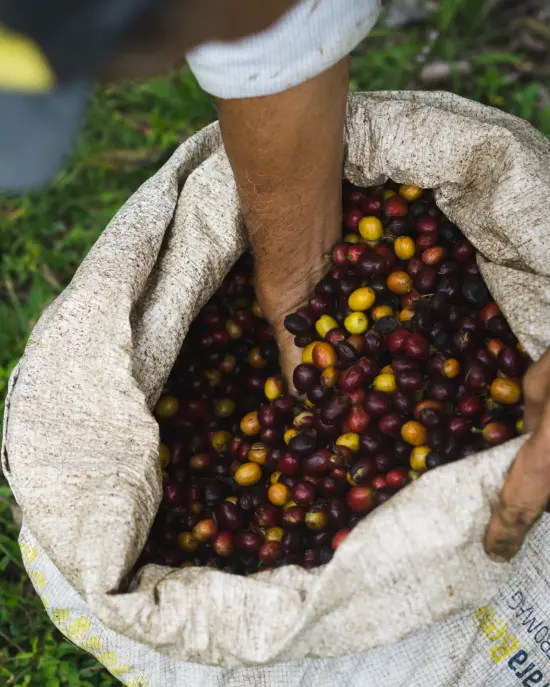
What do you think is unique about Colombian coffee compared to other coffees around the world?
Every coffee in the world is unique. At first, we believed that, because we were Colombians, we had the best and most special coffee. But now we understand that it is not about competing, but about learning and enjoying.
How has the book affected coffee producers in Colombia?
I don’t know if the book had a direct effect on the coffee growers. But what is certain is that from the book we created new brands and developed new ideas. And these are contributing to improving the life quality of coffee growers.
What do you think are the most important issues for coffee producers in Colombia today?
There are several, actually. Key issues for Colombian coffee producers today include high production costs, limited government support for quality practices, infrastructure challenges, and marketing channel limitations.
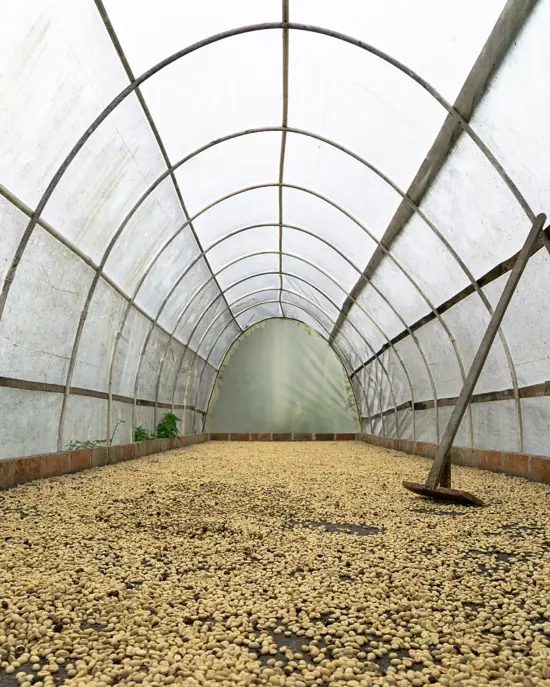
Check Out Carlos’ Book
The insights shared by Carlos Ospina Marulanda through El Andariego are a testament to the transformative power of storytelling in the coffee industry. The possibility of an English translation of this work holds the promise of shining a global spotlight on the rich tapestry of Colombian coffee culture and its unsung heroes.
This interview has been edited for content and clarity.
ABOUT THE AUTHOR
Vasileia Fanarioti (she/her) is a senior online correspondent for Barista Magazine and a freelance copywriter and editor with a primary focus on the coffee niche. She has also been a volunteer copywriter for the I’M NOT A BARISTA NPO, providing content to help educate people about baristas and their work. You can follow her adventures at thewanderingbean.net.
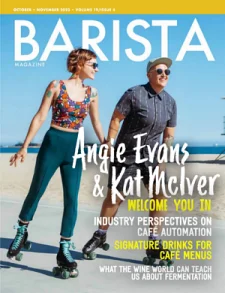
READ THE LATEST BARISTA MAGAZINE
Out now: It’s the October + November 2023 issue of Barista Magazine! Read for free with our digital edition. And for more than three years’ worth of issues, visit our digital archives here.
Get a hard copy of the magazine through our online store, or start a subscription for one year or two.

